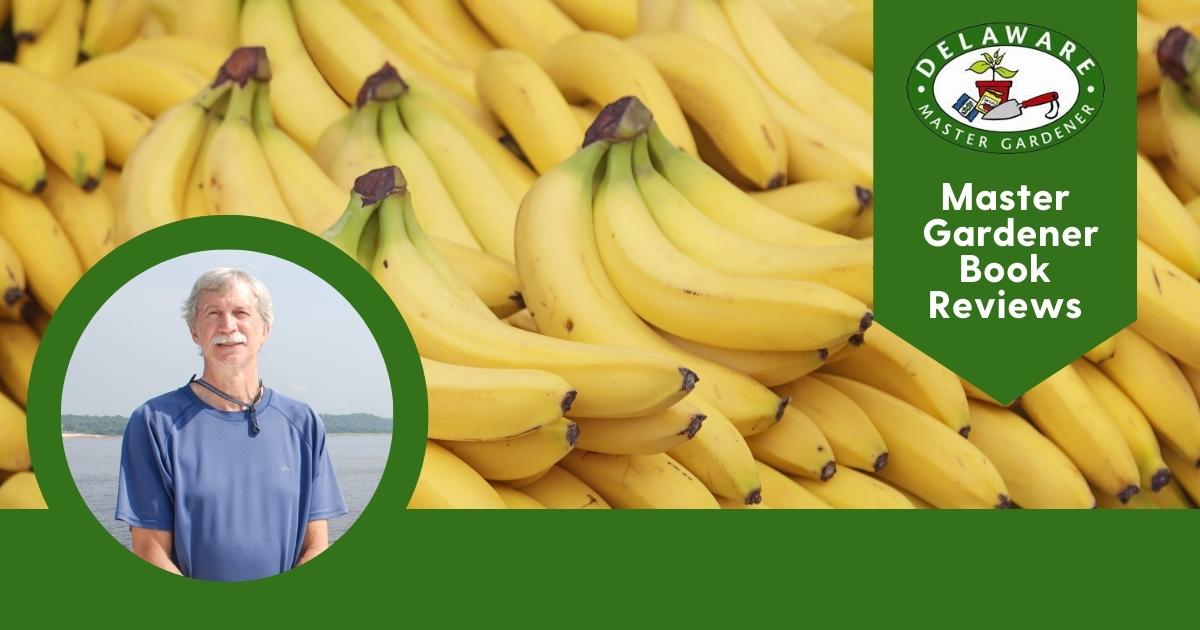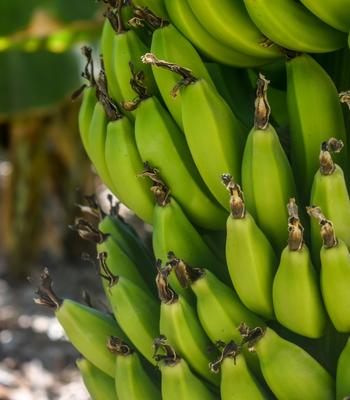
Category: Cooperative Extension

Banana: A Master Gardener Book Review
July 01, 2022 Written by Alan Greenglass — Delaware Master Gardener
Dan Koeppel’s 2009 book, "Banana", tells us much about this ubiquitous, yellow staple. He covers the science, biology and agriculture. And, as in other recent, single-named books such as "Salt" and "Cod", he puts the fruit into its historical context. The subtitle of the book is “The Fate of the Fruit That Changed the World”. For the story of the banana is one of scientific, marketing, business and economic success and intrigue and also of the exploitation and malevolence that can come from the excesses of capitalism and colonialism.
The banana is actually a giant berry and there are thousands of types. They were spread from Asia to Africa and then to the Western Hemisphere. They were basically unheard of in the United States until the late 1800s. Eventually, two large companies, United Fruit and Dole, evolved from the original pioneering entrepreneurs. The fight and race to develop a variety that could be grown, then shipped thousands of miles, commercially and profitably, reads like a detective story and sometimes like a science fiction fantasy. It follows the development of plant and industrial technology.

But the detective story that is the tale of the banana and its perilous future is paralleled by another mystery and adventure that would befit a novel if it weren’t so disturbingly true. It often involves deceit, bribery, murder, clearing of rain forests, decimated land and befouled water and the exploitation and genocide of workers.
The banana companies encouraged and materialistically supported the Bay of Pigs invasion of Cuba to try to reclaim their plantations nationalized by Castro. This was just another episode in a long history of creating and dominating “Banana Republics,” often with the support of the US government. The stakes were and are high. An example of this was the 1974 suicide of Eli Black, the head of United Fruit. His company was caught in a bribe of more than a million dollars to the president of Honduras and Black threw himself out the window of his skyscraper office in Manhattan.
The future of the banana is unknown – will there be a viable replacement for the Cavendish before it succumbs to the disease to which its breeding made it susceptible? Will the tensions between countries and the plights of workers, as well as the environmental hazards (including shipping from thousands of miles away), mean they can’t, or shouldn’t, be affordable? Koeppel lays the framework for us to better understand the future of our yellow friend.
Did you know?
- Some researchers think the fruit tempting Adam and Eve in the Garden of Eden was a banana, not an apple;
- Bananas are the most consumed fruit in the world (more than 100 billion eaten annually);
- Americans consume more than 20 pounds of bananas per capita each year;
- Wilmington is the largest banana port on the East Coast (bringing in 5-10 billion each year);
- Bananas are sexless and seedless; they are not trees but grasses. All the bananas we eat are the result of hybridization and they spread by producing corms;
- The banana many of us (or our parents) grew up eating, the Gros Michel, is gone, the victim of Panama Disease. Because all commercially grown bananas are genetically identical, they are all subject to the same diseases. Panama Disease, a soil and water-borne fungus, spread around the world, wiping out Gros Michel;
- The banana we eat now, the Cavendish, like the Gros Michel before it, is under attack by Panama Disease and the banana industry is racing to find a replacement and maybe one with more disease resistance.
Resources
Banana, The Fate of the Fruit That Changed the World; Dan Koeppel; Plume Books; 2009.
https://www.nationalgeographic.com/environment/urban-expeditions/food/food-journeys-graphic
https://www.npr.org/2008/02/18/19097412/bananas-a-storied-fruit-with-an-uncertain-future (An interview with the author with Terry Gross on Fresh Air)
